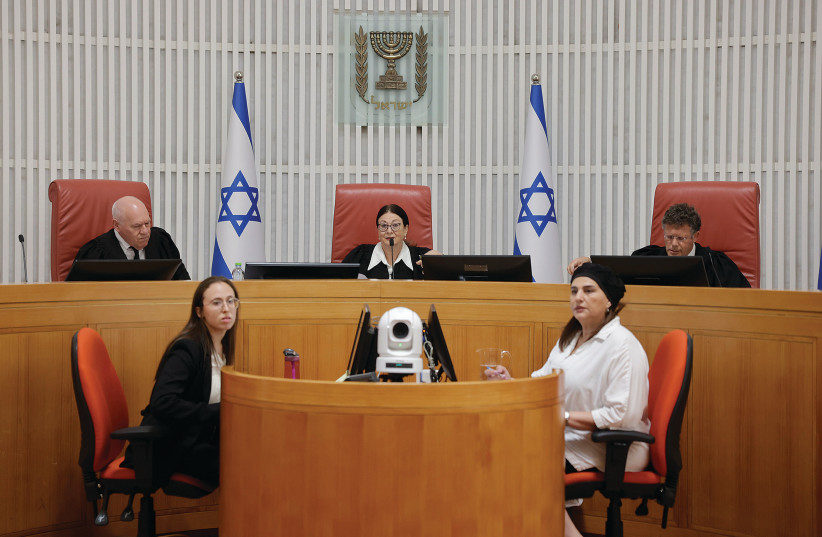The High Court of Justice on Monday struck down a law passed last year that would have curbed the court’s ability to use a “reasonableness doctrine” in its rulings. This is an important decision. The court made its ruling with a bare majority of eight justices against seven. It also said that it has a power to strike down basic laws by a majority of 12-3.
The rulings are important for Israel and show that the country is a thriving democracy, even during one of the worst wars in the history of the state.
We face unprecedented crises today on the frontline as the war drags on soon into its fourth month. In addition, more than 100,000 Israelis are still evacuated from 100 border communities.
Nevertheless, courts operate during war time and our democracy must remain as strong during crisis as during peace. The test of a democracy is how it behaves in crisis, not how it behaves when things are tranquil. Our democracy has now passed that test. We have come through the fire of war and we are thriving in the unity that is needed during this time.
The ruling by the court brings back memories of the divisions in society in the summer of 2023 when the judicial reform was being passed and there were unprecedented protests. However, the court’s ruling need not be a reason to go back to those difficult days. We all know now how important unity is. Our enemies want to take advantage of divisions in our society to strike at us.

The court issued its verdict with a narrow margin. The ruling is long and complex and experts and politicians will need to study it and draw their own conclusions. It is unprecedented in many ways. The Knesset had sought to curtail the High Court’s power last year, and the court has now sought to prevent the curtailing.
These are the kind of checks and balances that one expects in a democracy. This is also not unique to Israel. The power of the court system is a question that has been raised in many countries and has been adjudicated over time. Our system may be younger than the systems in the US or UK, but we all must have these discussions.
The timing of the decision is important because several judges are retiring and needed to complete their opinions. For instance, justices Anat Baron and Esther Hayut are retiring. This explains the timing of the ruling.
It is not our place to decide on the reasonableness doctrine at this time
It is not our place to decide on the reasonableness doctrine at this time. The court has issued its ruling, and it should be respected. We are also in the midst of war and it is important that this not lead to a domestic political crisis. There will be time in the future to consider the ruling and the legislation.
As a democracy it is important that discussions be had about how much leeway the court has to use the reasonableness doctrine to strike down laws, and also whether it can rule that its own power cannot be curtailed. The court’s ruling is narrow, as was the vote for the curtailment of the its power by the Knesset in the summer of 2023.
What this tells us is that our society is not only a strong democracy but that it is also a balanced society, with views on both sides. We do not cave in to populism and authoritarianism.
There are those who will praise this decision. The Movement for Quality Government in Israel, for instance, has said that this is “a historic verdict. A government and ministers who sought to exempt themselves from the rule of law were informed that there are judges in Jerusalem. There is democracy. There is a separation of powers. That the fortress – as former prime minister Menachem Begin called it – is still standing.”
There are surely those who will think the court has once against overstepped its power and that it is trying to prevent our democracy from legislating its role.
All of these debates will be had in good time; there is no urgency now. We must defeat our enemies, including Hamas as well as the other parts of the Iranian-backed terror nexus that shrouds the region in darkness. As that task is completed – and it may take months or even years – the country will need to revisit the judicial reform. These are healthy debates to be had, and we will have them.
